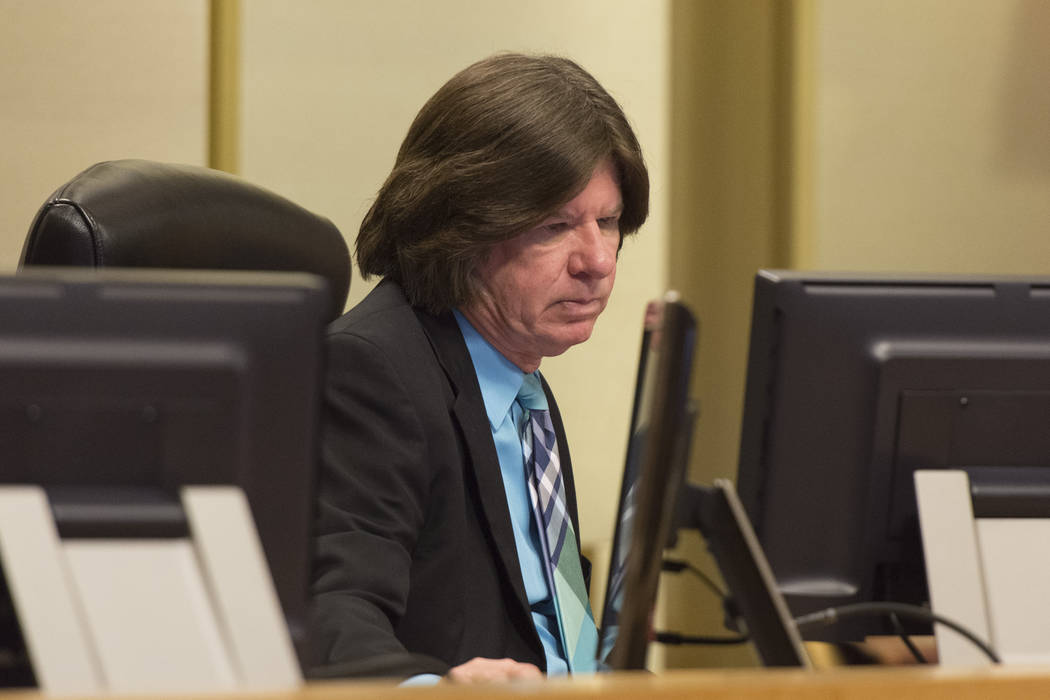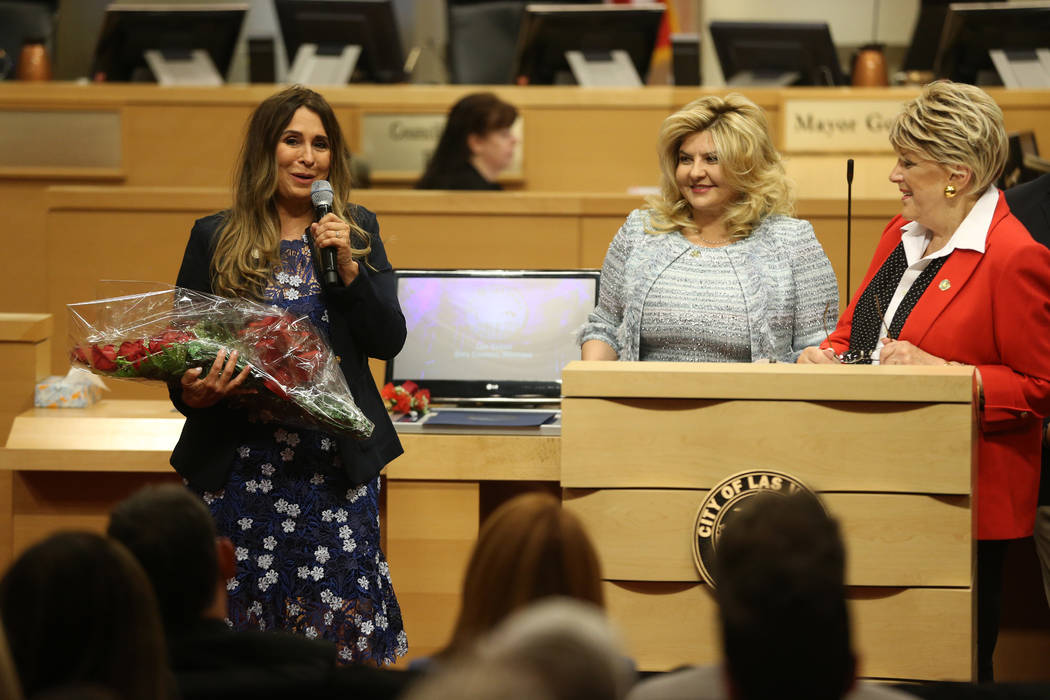STEVE SEBELIUS: Good law makes a hard case
The most difficult thing about the Nevada Supreme Court’s ruling last month requiring jury trials in misdemeanor domestic violence cases is that everyone involved is trying to do the right thing.
The 2015 Legislature was acting in good faith when it specified in an omnibus gun law that people convicted of misdemeanor domestic violence should lose their right to own a gun. Not only did the requirement mirror federal law, it makes sense.
That’s true even if the provision was included in the Republican-sponsored bill — which dramatically expanded gun rights — in order to draw Democratic votes or provide a nifty election issue against those who said no. (“Call so-and-so and ask why they voted to let domestic abusers keep their guns!”)
The Nevada Supreme Court was acting in good faith when it ruled Sept. 12 that the loss-of-firearms penalty elevated the misdemeanor crime to a level “serious” enough to require a jury trial, rather than one heard before a judge. “Given that the Legislature had indicated that the offense of misdemeanor domestic battery is serious, it follows that one facing the charge is entitled to the right to a jury trial,” the court concluded unanimously.
Because the U.S. Supreme Court has ruled that the Second Amendment confers an individual right to own a firearm unconnected with service in the militia, there should be a high bar to impair that right.
Las Vegas officials are doing their best to try to adapt to the new legal reality, given the constraints on their resources. Municipal courts in Nevada are simply not prepared to hold jury trials because of the sheer volume of misdemeanor domestic battery cases they see, itself a sobering thought.
In order to hold jury trials for the hundreds of cases coming through the system, municipal courts would have to hire more prosecutors and public defenders, pay for fielding more jurors and ask both victims and defendants to endure longer waits for justice.
Not only that, they’d also have to remodel their courtrooms, which don’t have jury boxes. That wasn’t a design flaw: Under state law, municipal courts aren’t empowered to hold jury trials.
As a result, the city has begun charging offenders with simple battery, a misdemeanor crime that carries no gun-loss penalty and thus doesn’t trigger the Nevada Supreme Court’s requirement for a jury trial. And Las Vegas has introduced an ordinance that would create a local crime of “battery which constitutes domestic violence,” which would not result in the loss of firearms.
Longtime City Attorney Brad Jerbic, who helped write the state’s domestic violence laws in the mid-1990s, said the delays increase risks to victims. The most dangerous period for victims is between the arrest of the suspect and the trial, he said.
“There’s no good choices here,” Jerbic said. On the one hand, the city is looking at a huge expense and unforeseen logistical hurdles that could grind the municipal court system to a crawl and exceed the authority granted by state law. On the other, there are legitimate questions about whether the city’s approach will pass muster.
“I think this is pre-empted by the original rule,” said Ian Bartrum, a professor at UNLV’s Boyd School of Law. In order for local governments to act, he said, local laws cannot undermine the purpose of state law or venture into territory that the Legislature has clearly occupied by its own lawmaking.
The city’s ordinance appears to violate both precepts, Bartrum said.
Finally, advocates for victims of domestic violence are correct when they note the myriad consequences of failing to charge people with the state offense. Not only will abusers retain their right to own firearms, but other harms may result, too.
For example, if jurisdictions evade the new jury-trial requirement by charging offenders with simple battery, statistics documenting the incidence of domestic violence will show a deceptive drop. Second and subsequent offenses — and their increasing penalties — may not be applied. Court-imposed requirements including mandatory counseling may not be imposed.
And, as attorney Bailey Bortolin, who represents the state’s legal aid centers, says, establishing the clear and convincing evidence to place children with the victim of domestic violence rather than with the perpetrator becomes somewhat more difficult. “We weren’t ready to tackle this,” Bortolin said. “It needs more time, attention and budget.”
But former state Senate Majority Leader Michael Roberson, the author of the 2015 bill, said the ruling was correct, even with the consequences. “I don’t think that more jury trials is a bad thing,” Roberson said. “If other states can figure this out, I’m confident Nevada can, too.”
For Jerbic, the lesser-charge approach and local ordinance is only a stopgap measure, until the Legislature has time to address the Supreme Court’s ruling. “There is no harm in buying time to allow the state to reconsider this,” he said.
But how the state should address the matter is part of the problem.
Bartrum said the Legislature could decide to remove the gun-rights penalty, thus eliminating the jury-trial requirement. That approach, while the easiest, would contravene a sensible state policy that undoubtedly has saved lives and may save many more into the future.
Or, he said, the Legislature could by policy move all misdemeanor domestic violence cases to Justice Court, which is empowered to hold jury trials under state law. But he says that approach simply moves the problem of resources and trial delays to another venue.
A third alternative: more funding and a change to state law that would allow municipal courts to hold jury trials for domestic violence cases.
No matter what alternative you choose — softening the law, devoting more tax dollars to jury trials — there will be significant consequences for the victims of domestic abuse, people who have suffered enough already. Like Jerbic says, there are no good choices here.
Contact Steve Sebelius at SSebelius@reviewjournal.com or 702-383-0253. Follow @SteveSebelius on Twitter.


















